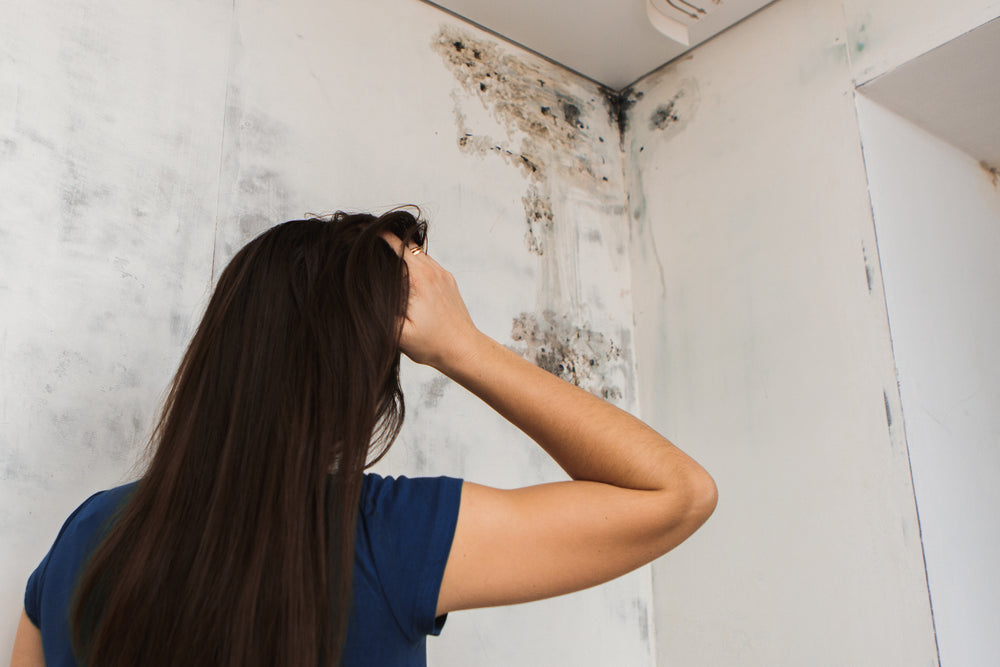Basements can be dark and damp, a perfect recipe for mold, mildew, and other particulates you don’t want your family to breathe. However, there are ways to improve the air quality in your basement and ease your worries regarding mold growing in your home.
Just how damaging is mold in the home?
Mold toxicity and other biotoxin illnesses, such as Chronic Inflammatory Response Syndrome (CIRS), are a growing concern in the United States, especially in areas with high humidity and hurricane damage.
The most common cause of these illnesses is exposure to indoor toxic bacteria, molds, and other inflammagens in water-damaged buildings. However, a humid space like a basement can be enough for these unwanted biotoxins to flourish.
To transform your basement into a healthier and more comfortable environment, you must take a few steps to improve air quality. This blog post explores six tips to help you achieve that so you can breathe more easily at home.
Invest in a High-Quality Dehumidifier
One of the most common problems in basements is excess humidity, which can lead to mold growth, musty odors, and poor air quality. To combat this issue, invest in a high-quality dehumidifier.
Dehumidifiers remove excess moisture from the air, helping maintain an optimal humidity level. You should choose a model appropriate for your basement's size and set it to maintain a relative humidity level of around 30-50%.
Regularly empty the collected water and clean the unit to maintain efficiency.
Strategically Use Air Purifiers
Air purifiers are excellent tools for removing airborne contaminants and allergens from your basement air. Consider strategically placing one or more air purifiers throughout the space to ensure thorough air circulation and effectively filter out mold spores, including black mold and other allergens and pollutants.
Look for air purifiers with HEPA filters, such as the iAdaptAir®–they can capture particles as small as 0.3 microns (mold spores are typically 2-10 microns). The iAdaptAir® air purifier uses multistage filtration and purification technologies, with ample scientific evidence of its efficacy in trapping unwanted contaminants.
Air Oasis air purifiers use activated carbon filters to tackle odors and remove harmful VOCs like mycotoxins, leaving your basement air clean and smelling fresh.
CIRS patients have used the iAdaptAir® to provide comfort and peace of mind from biotoxin illness.
Improve Ventilation
Basements often suffer from poor ventilation, leading to stagnant and stuffy air. To remedy this, increase ventilation in your basement. Proper ventilation helps exchange indoor air with fresh outdoor air, reducing moisture and pollutants.
You can achieve this by installing exhaust fans, ceiling or tower fans, or opening windows when weather permits. If your basement has a ventilation system, ensure it is well-maintained and functioning correctly to ensure a steady flow of fresh outdoor air.
Seal Cracks and Leaks
Basements are prone to leaks and cracks, allowing moisture and outdoor air pollutants to seep into your space. To enhance air quality, inspect your basement for any leaks or cracks in the walls, floors, windows, and foundation.
Seal them using waterproof sealants to prevent moisture intrusion and the infiltration of outdoor contaminants. Repairing foundation cracks to prevent water infiltration is critical in creating a safe, breathable environment.
Utilize Mold-Resistant Materials
Mold growth is common in basements, primarily due to the damp environment. Even with dehumidifiers and the other tips we’ve discussed, the spores and mycotoxins can thrive.
Consider using mold-resistant materials when renovating or finishing your basement to prevent mold and improve air quality. Mold-resistant drywall, paints, and insulation can help create a more inhospitable environment for mold to thrive, and moisture-resistant flooring materials like ceramic tiles, vinyl, and epoxy add a layer of protection.
Regular Maintenance and Cleaning
Maintaining a clean and well-kept space is crucial for good basement air quality. Regularly clean and dust your basement, paying particular attention to corners, nooks, and crannies where dust and mold can accumulate. Washing and disinfecting surfaces is vital to discourage microbial growth.
Also, keep an eye on the dehumidifier and air purifiers–routine maintenance, cleaning, and filter replacement ensure they work optimally.
Improve Basement Air Quality with Air Oasis
A healthier basement environment improves indoor air quality throughout your home. A clean, comfortable basement is attainable by implementing these six tips to improve air quality.
Investing in a dehumidifier, strategically using air purifiers, improving ventilation, sealing leaks and cracks, using mold-resistant materials, and practicing regular maintenance and cleaning can significantly enhance the air quality in your basement.
At Air Oasis, we create superior air purifiers by utilizing the top purification technologies: activated carbon filtration, HEPA filtration, UV light, and two types of ionization. In a 2018 study, our iAdaptAir® (which uses all five technologies) reduced the airborne fungus Aspergillus niger by 99.9% after 10 minutes.
When you’re ready to get serious about mold elimination in your basement, let our top-of-the-line air purifiers do the heavy lifting. Our air purifiers can prevent mold from recolonizing and help you breathe safer by reducing and even eliminating mold spores.



